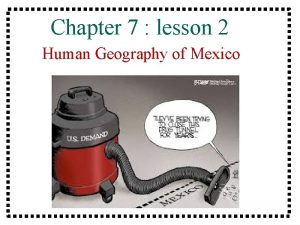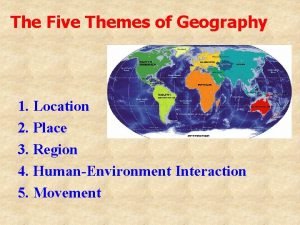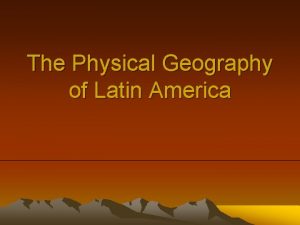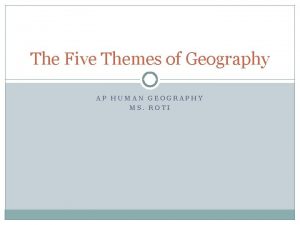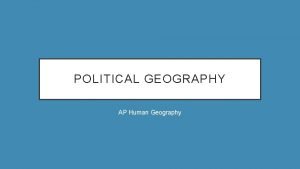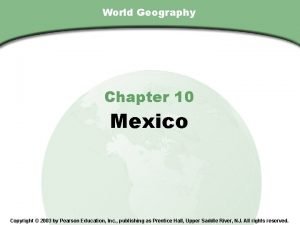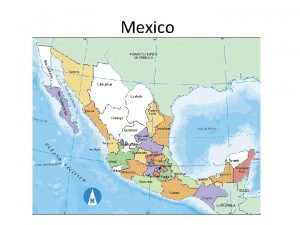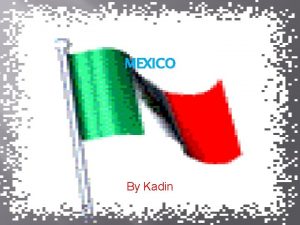MEXICO Chapter 10 1 I Geography of Mexico







- Slides: 7

MEXICO Chapter 10 -1

I. Geography of Mexico A. Mountains dominate Mexico’s setting 1. Sierra Madre Occidental – largest mountain range (west coast) 2. Sierra Madre Oriental – second largest mountain range (east coast) B. Between the Sierra Madres (mother ranges) is the central plateau – high, flat land

C. Peninsula – strip of land that juts out into the ocean 1. Baja Peninsula – west coast 2. Yucatan Peninsula – east coast D. Southern part of the plateau has the best farmland because it is nourished by rich soil and lots of rain E. Mexico is located at the intersection of 4 tectonic plates (North American, Caribbean, Pacific, and Cocos) 1. these plates create jagged mountain ranges and some of the mountains are still active volcanoes 2. strong earthquakes also rock this region

II. The Coastal Regions A. Northern Pacific Coast 1. dry and hot 2. thinly populated 3. Tijuana is Mexico’s fastest growing city and is right across the border from California 4. The Baja peninsula is mostly mountainous desert

B. Southern Pacific Coast 1. little farmland 2. spectacular natural settings 3. tropical climate 4. tourism is big here, especially to cities like Acapulco, Mazatlan, and Puerto Vallarta

C. Gulf Coastal Plain 1. vitally important to Mexico’s economy 2. in the Gulf of Mexico, there are vast deposits of petroleum and natural gas 3. the Gulf of Mexico is one of the world’s major oil-producing regions

D. The Yucatan Peninsula 1. generally flat 2. the ground is mostly made of limestone, so when it rains the water works into the rock…eventually underground caverns are created 3. tourism along the coastline has contributed to the economic development of the area 4. ancient Mayan ruins attract tourists and archaeologists year round
 Guided reading activity lesson 2 human geography of mexico
Guided reading activity lesson 2 human geography of mexico 5 themes of geography mexico
5 themes of geography mexico Physical geography of mexico
Physical geography of mexico Ap human geography frq examples
Ap human geography frq examples 5 themes of geography ap human geography
5 themes of geography ap human geography Ap human geography political geography test
Ap human geography political geography test Chapter 28 section 4 turmoil and change in mexico
Chapter 28 section 4 turmoil and change in mexico Chapter 10 section 1 mexico
Chapter 10 section 1 mexico
